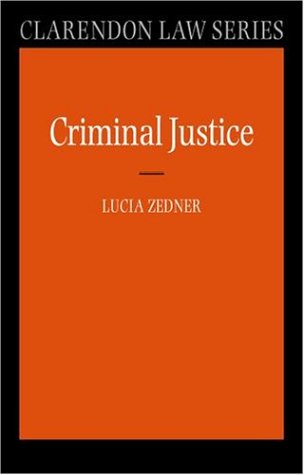
Following in the tradition of the Clarendon Law Series, Criminal Justice is an extended essay on the core concepts, structures, and processes of the criminal justice system. The book prefers theoretical reflection above detailed description and favours provocative questions over simple answers. Its primary aim is to stimulate students of criminal justice to think critically about what they have learned.
Criminal Justice challenges conventional understanding of crime, criminal justice and punishment by revealing their meanings to be open to multiple interpretations. It explores the historical contingency and cultural specificity of the institutions and practices of criminal justice. And it considers the many, often conflicting, roles fulfilled by the various players in the criminal process. In so doing, it reveals criminal justice to be more diverse and its purposes more contested than conventional accounts allow.
The book concludes by examining radical changes in crime control and the pursuit of security and considering their import for criminal justice as we know it.